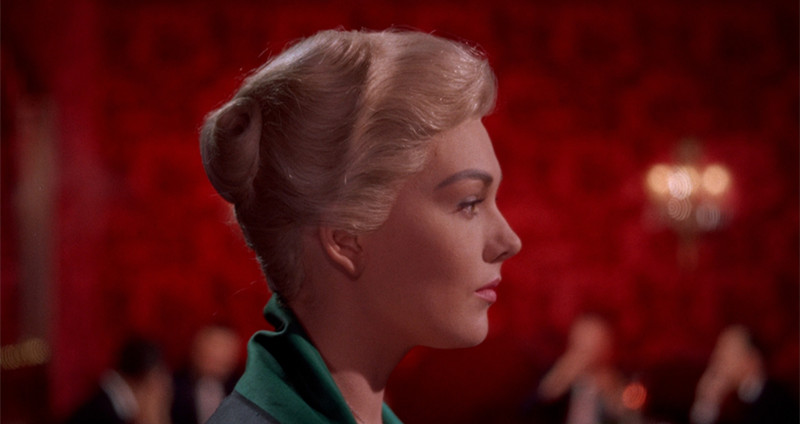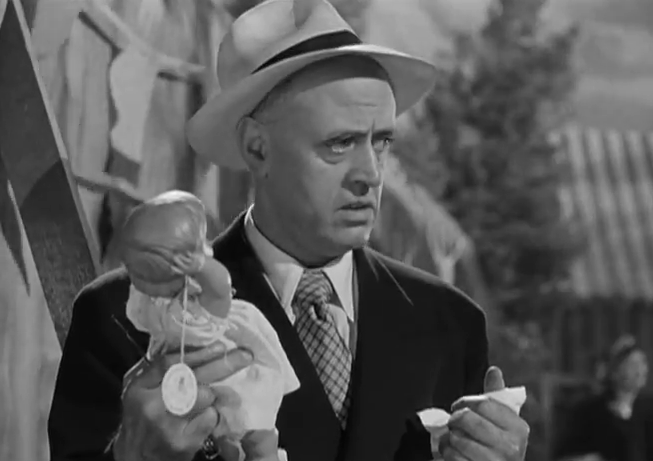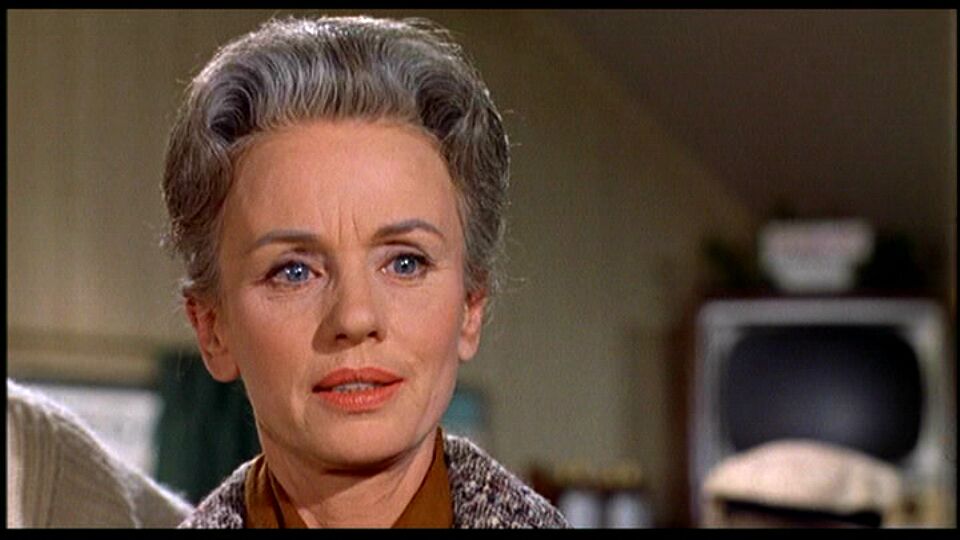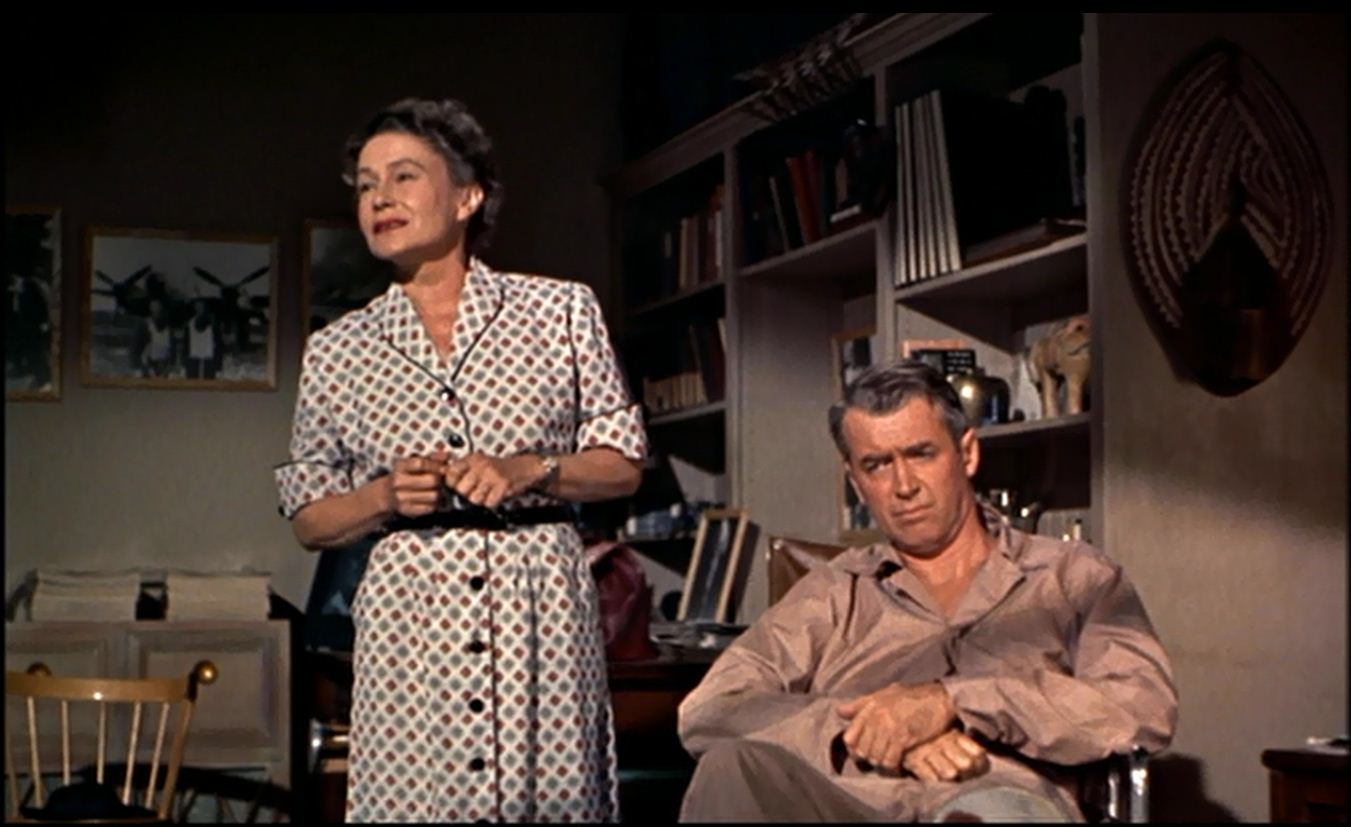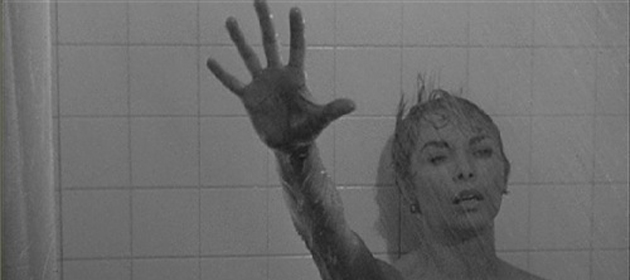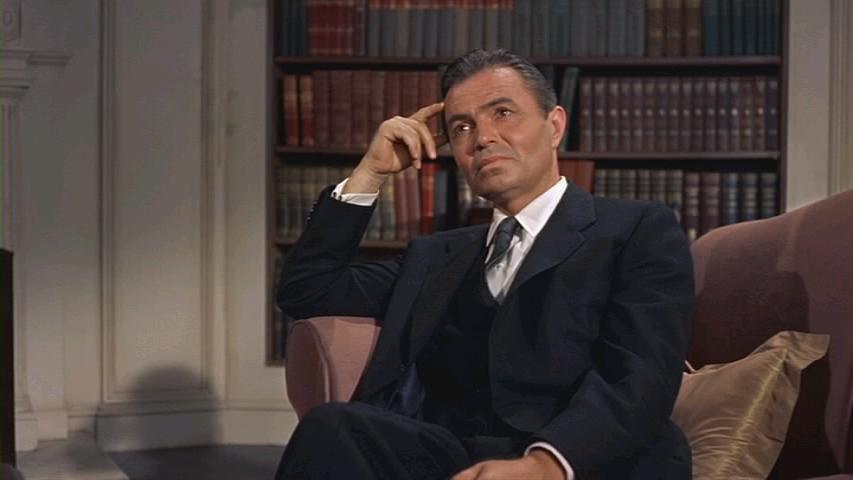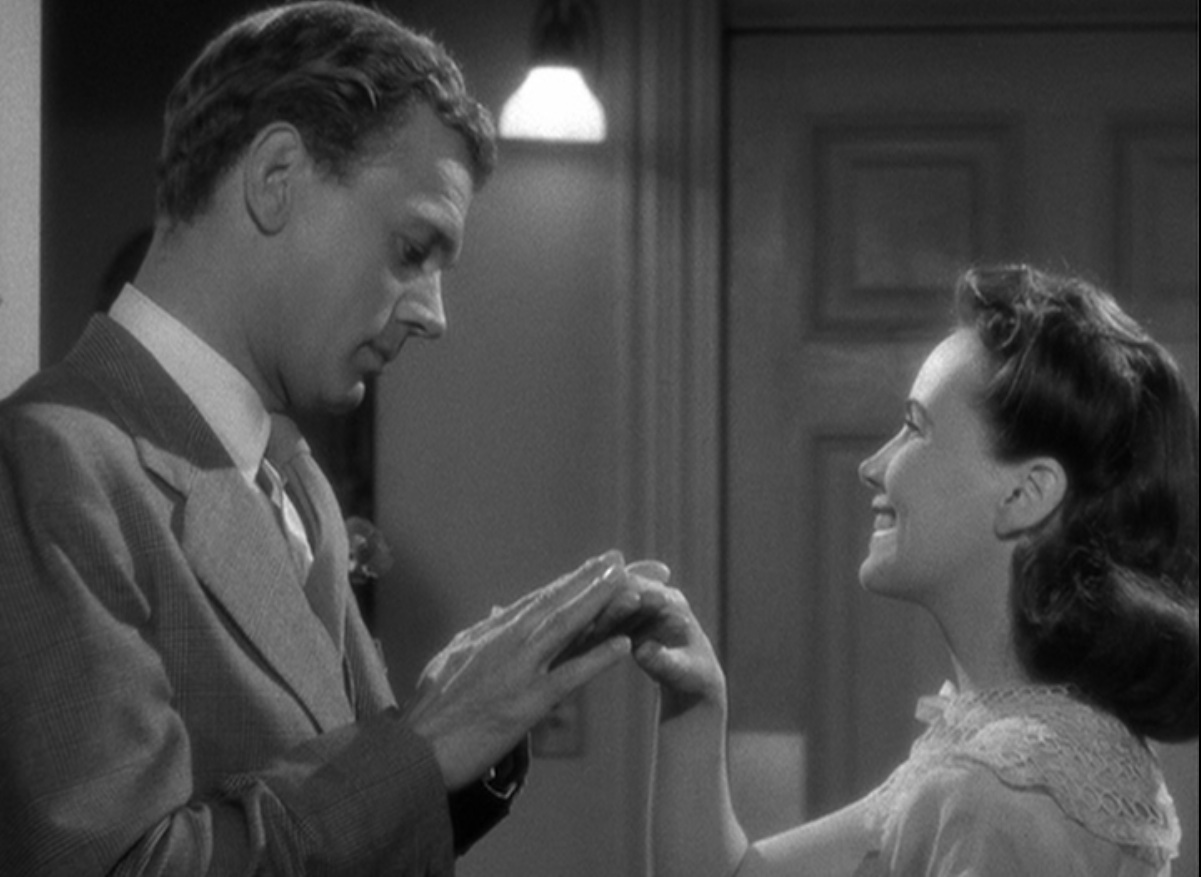Alfred Hitchcock is purported to have famously said: “Actors are cattle.” Hitchcock claimed to have been misquoted, saying only that he said that ‘Actors should be treated like cattle!’ It was something of a subtle difference, but irregardless, Hitchcock’s films contain many wonderful and varied acting performances throughout his fifty plus year career.
Although he was not really an ‘actor’s director’ in the way that one might say Elia Kazan was, Hitchcock nonetheless had many actors that were devoted to him and enjoyed working in his films.
It was tough to boil it down to the top 25, so let’s add honorable mentions to Barbara Bel Geddes in Vertigo, Montgomery Clift in I Confess, Louise Latham in Marnie, Raymond Burr in Rear Window and, most of all, Alfred Hitchcock himself, for the 40 or so cameo appearances he made in his own films. Here then are the top 25 acting performances in Hitchcock’s 53 films.
25. Lila Kedrova as ‘the Countess’ in Torn Curtain (1966)
Kedrova was born in Russia around the time of the revolution and her family eventually emigrated to France, where she grew up. In 1964 she won the best supporting actress Oscar for her role in Zorba the Greek, and Hitchcock cast her in the part of the exiled Polish Countess in his 1966 espionage film, Torn Curtain.
As the Countess, Kedrova helps Michael (Paul Newman) and Sarah (Julie Andrews) as they desperately try to escape from Communist East Berlin, in the hopes that they will be her ‘sponsors’ and help her obtain her freedom and come to America.
Kedrova’s part in the film is small, lasting only a few minutes, but she undoubtedly steals every scene in which she is in, winning the audience’s sympathies over with her determination to help the couple as well as herself. In the end, she assists Michael and Sarah in getting away from the police, but it seems unlikely that her efforts will help her achieve her goal of escaping the repressive regime.
Her final shot in the film, watching them run away while she stays behind, still hopeful that they will be her sponsors, is one of incredible pathos and emotion, showing that Hitchcock could find great moments even in small character parts.
24. Alastair Sim as Commodore Gill in Stage Fright (1950)
Sim was a highly successful Scottish stage and film actor, the kind of polished professional with whom Hitchcock always enjoyed working. Shooting Stage Fright in England in 1950, Hitchcock cast Sim as Commodore Gill, the eccentric father of Jane Wyman’s aspiring actress Eve, and something of a Hitchcockian alter ego (as Hitchcock’s own daughter, Pat, was attending the Royal Academy of Dramatic Arts at the time and is also featured in the film).
Eve brings her boyfriend Jonathan (Richard Todd) to hide out from the police with her father, but the wily Commodore picks up some holes in Jonathan’s story and suspects that his daughter has gotten in over her head with the confused young man.
Commodore Gill is only a supporting part in Stage Fright, but it is a highly significant one, and one of Hitchcock’s most memorable characters. Estranged from his wife, the Commodore lives his own eccentric lifestyle and is apparently happy. He participates in one of the most suspenseful scenes of the film, when he gives a small boy a bloody doll to take to the stage in an attempt to reveal the guilt of Charlotte Inwood (Marlene Dietrich), an effort that is only partially successful.
Sim went on the next year to star as Ebenezer Scrooge in a film version of Dicken’s A Christmas Carol; his grouchy and cantankerous outer shell concealing a heart of gold made him perfect for that part, as it also did for the part of Commodore Gill.
23. Jessica Tandy as Lydia Brenner in The Birds (1963)
Hitchcock liked working with personal friends, and so he cast Jessica Tandy, wife of former associate Hume Cronyn, in the important part of Lydia Brenner, Mitch’s mother. Tandy had originated the role of Blanche DuBois in Tennessee Williams’ A Streetcar Named Desire on Broadway in 1948, but lost the film role to Vivian Leigh and had worked on the stage most of her career.
She took the part of Lydia, Mitch’s sometimes domineering mother who also shows her fragile and vulnerable side as she slowly breaks down under the stress of the constant bird attacks in the film. She was also particularly good in the scene in which Melanie (Tippi Hedren) brings her tea in bed as she recovers from the shock of seeing farmer Dan Fawcett with his eyes pecked out.
Tandy went back to Broadway, for the most part, after her turn in The Birds, but had a late career surge in films, starring in Cocoon and Driving Miss Daisy in the 1980’s. She finally became known to a younger generation of filmgoers and was admired for her indomitable spirit and classy demeanor. Jessica Tandy passed away in 1994, but will always be remembered for her part as Lydia in one of Hitchcock’s most shocking and terrifying films.
22. John Dall as Brandon Shaw in Rope (1948)
Hitchcock’s 1948 film Rope was an experiment on several levels. His first film on his own as a producer, it was also his first film in color and was shot in a series of long takes in order to give the impression that the film was taking place in real time over the course of one evening, in the home of Brandon (Dall) and Phillip (Farley Granger).
Hitchcock wanted Montgomery Clift for the part of Phillip and Cary Grant for Rupert, their former teacher and mentor, but Clift and Grant declined and he had to accept Granger and Jimmy Stewart, who was woefully miscast as Rupert.
Dall, however, was happy to take the part of the aggressive Brandon, who initiates the murder of David Kentley and takes delight in serving a dinner party to his friends and family on a chest containing the body. Dall gives a compelling performance as Brandon, goading his partner into the murder then keeping a cool head for the rest of the evening as their guests wonder what happened to David.
Dall went on the play the lead in Gun Crazy (1950) but did mostly theatrical roles until a part came along in Spartacus (1960). A few Perry Mason television roles followed, but Dall’s once promising career slowly declined as did his health due to alcoholism. He passed away of a heart attack in early 1971 at the age of 50, a once promising star whose potential was never fulfilled.
21. Thelma Ritter as Stella in Rear Window (1954)
One of the greatest female character actresses of all time was Thelma Ritter, who appeared as Stella, the insurance company nurse who takes care of L.B. Jeffries (Jimmy Stewart) in Rear Window. Not blessed with conventional beauty, Ritter took on small, supporting parts, first coming to notice in the part of Birdie in All About Even (1950). After that it was steady character work for Ritter, but her part in Rear Window as well as her later part as Isabelle in The Misfits (1961) were career high points.
Appearing as something of a Greek chorus in Rear Window, Stella constantly steps back and comments on the action, warning Jeffries and girlfriend Lisa (Grace Kelly) that they are getting in over their heads as their suspicions about the murderous Thorwald (Raymond Burr) rise. A bit of a dime store philosopher, Stella also has lines like “We’ve become a race of Peeping Toms…what people ought to do is get outside of their houses and look IN for a change!”
Ritter’s unassuming, blue collar style kept her from getting annoying in the part, and the film became one of Hitchcock’s most popular and a huge hit with audiences when it was released in 1954. Thelma Ritter continued to work steadily in films and television until her somewhat premature death from a heart attack in 1969.
20. Janet Leigh as Marion Crane in Psycho (1960)
The part of Marion Crane was unusual in the sense that she is the apparent leading character in the film, but is suddenly vanquished about a third of the way into the movie before her character has really had a chance to develop. For this part, Hitchcock chose beautiful Janet Leigh, and she did not disappoint.
Leigh was signed as an MGM contract player in 1947 at the age of 20, and established herself through the 1950’s as a reliable leading lady, appearing in films such as Houdini and The Vikings with husband Tony Curtis. In 1958, Leigh appeared in Orson Welles’ masterpiece Touch of Evil, a role that may have influenced her casting in Psycho two years later.
As Marion Crane, Leigh’s character is highly sympathetic. The audience identifies with her struggles as a low paid secretary whose lover, Sam Loomis (John Gavin) cannot be with her due to his problematic financial situation. In this sense, we are able to forgive her for stealing the $40,000 from her employer and hope that she can somehow get away with it, but she meets her fate in the shower of the Bates Motel.
Janet Leigh’s sympathetic performance is one of the reasons that Marion’s early death is so upsetting to the audience, which helped the film achieve its fantastic success. Leigh could never shower again, apparently, and she went on to a successful career and also saw her daughter, Jamie Leigh, follow in her footsteps.
She passed away in 2004, remembered for her stellar career but mostly for the part that she played in the shower sequence in Psycho, one of the cinema’s all time most shocking and groundbreaking sequences.
19. James Mason as Phillip Vandamm in North by Northwest (1959)
The suave and sophisticated villain was a specialty of Hitchcock’s, and never was one so suave and sophisticated as James Mason in North by Northwest. Mason attained star status in the British cinema and immigrated to Hollywood in the later 1940’s, where he quickly established himself as a leading man. His role as the doomed Norman Maine in the 1954 version of A Star is Born showed that Mason had the acting chops to go along with his good looks and smooth style.
In 1959, Hitchcock cast Mason as Phillip Vandamm, a mysterious character who is the subject of government scrutiny as he is trying to steal some intelligence secrets on a bit of microfilm and take them out of the country in a rare art sculpture.
Mason contrasts nicely in the film with protagonist Cary Grant as Roger Thornhill, and the two face off memorably in several scenes, including one at the home of Lester Townsend on Long Island as well as the Chicago art auction. Mason’s Vandamm is a once threatening and charming, a contradiction made possible by Mason’s understated and cool acting style.
When his secretary, Leonard (Martin Landau) reveals to him the deceit of Eve Kendall (Eva Marie Saint), Vandamm at first lashes out at his associate in anger, punching him in the face. He then gets his emotions under control, cooly plotting Eve’s murder “at a great height…over water…”
Only the skills of James Mason could have made this character not only believable, but frightening as well. Mason continued on with his long and successful career, appearing as Humbert Humbert for Kubrick in Lolita (1962) and giving a memorable performance late in his career in The Verdict (1982) before passing away in 1984 at the age of 75.
18. Teresa Wright as Charlie Newton in Shadow of a Doubt (1943)
A special actress was required to play the integral part of young Charlie Newton, who discovers that her beloved uncle is actually the vicious ‘Merry Widow Murderer’ wanted by the police. Hitchcock found her in young Teresa Wright, and she gave a brilliant and credible performance in a film that become one of the director’s personal favorites.
Wright was discovered and signed by Samuel Goldwyn, appearing in The Little Foxes (1941) with Patricia Collinge, who would play her mother in Shadow of a Doubt. The next year, she won the Academy Award for Best Supporting Actress in Mrs. Miniver and was nominated for Best Actress for her role in Pride of the Yankees. This early success led to her casting by Hitchcock in Shadow of a Doubt.
As Charlie Newton, Wright had to make the audience believe in her love and devotion to her uncle Charles (Joseph Cotton) as well as her growing feelings for the policeman, Jack Graham (Macdonald Carey), who is after him. Her shock and growing dismay as she discovers the truth about her uncle were palpable on screen and led to the climactic moments of the film when she must battle to the death with her uncle as he leaves town on a train.
After the successful early years of her career, Wright appeared in William Wyler’s masterpiece, The Best Years of Our Lives (1946) before her film career slowly declined in the 1950’s. Later in her life, she was a frequent attendee and speaker at film festivals and retrospectives, finally passing away in 2005 at the age of 86, leaving behind a remarkable career and legacy.
